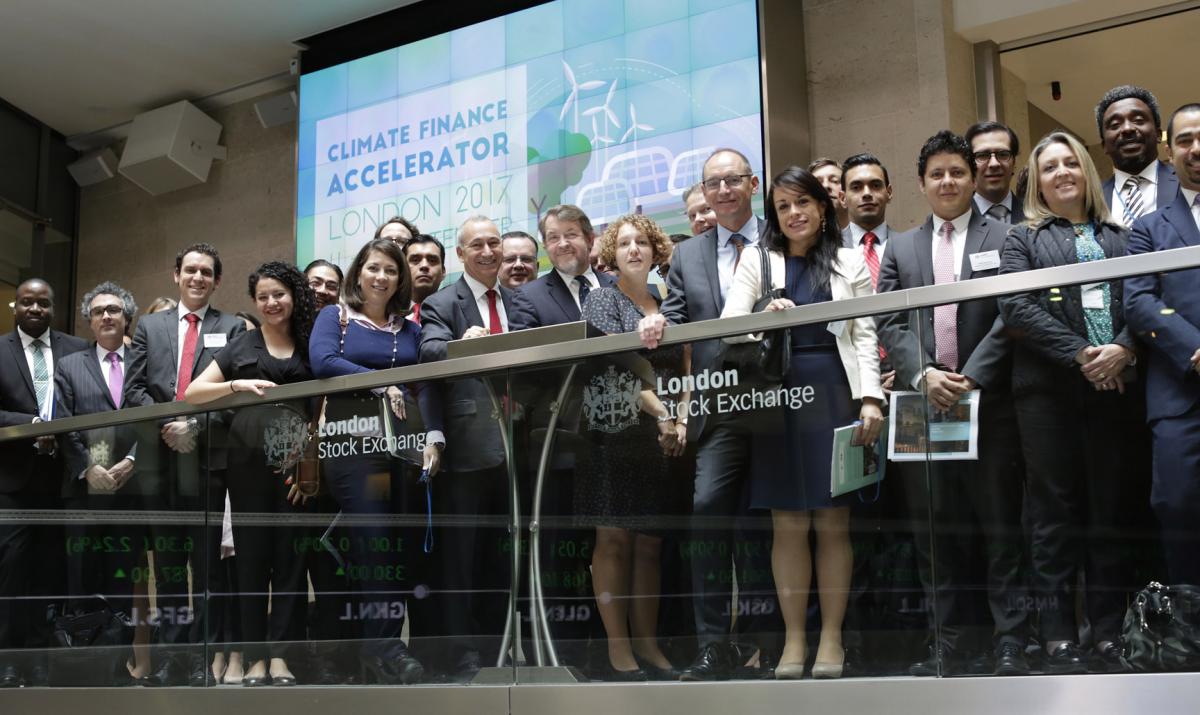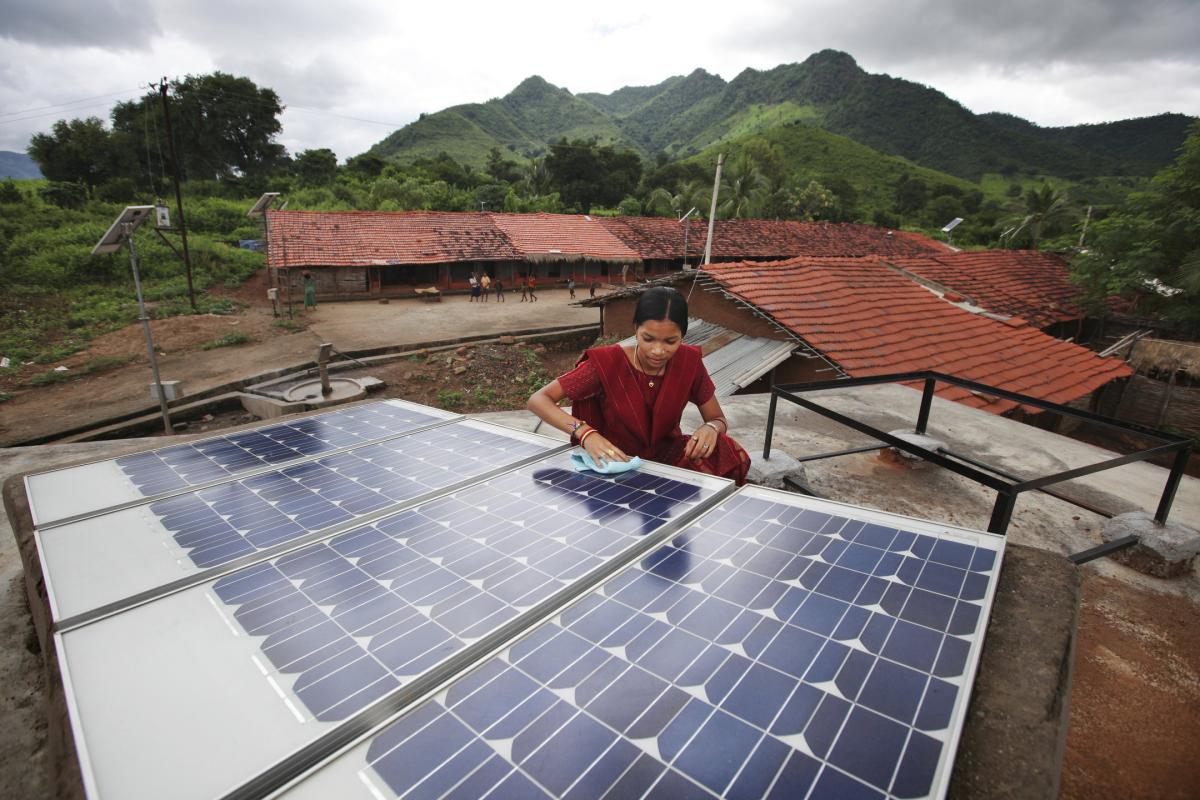The Climate Finance Accelerator and Green Climate Fund are among those trying to de-risk private sector investment in clean energy projects in poor countries
One of the biggest barriers to achieving ambitions to limit climate change to 2C will be overcoming the hurdles to financing renewable energy projects in developing countries.
A review by the World Bank and UN Environment of the nationally determined contributions and other policies in 21 developing countries that are responsible for half of global greenhouse gas emissions, released at this month's COP23 in Bonn, finds an initial investment opportunity of $22.6trn from 2016 to 2030. Yet the Climate Policy Initiative estimates that climate finance flows only amounted to $360bn in 2016, with developed country governments providing $10bn-$20bn.
Lack of renewables financing in developing countries took centre stage at the inaugural meeting of the Climate Finance Accelerator (CFA) earlier this year.
The initiative, designed to help developing countries secure international finance and support to finance climate action, brought together financial experts and government representatives from Colombia, Mexico, Nigeria and Vietnam during a week-long series of workshops that saw HSBC matched with Mexico, Deutsche Asset Management with Nigeria, and BNP working alongside Colombia.
“If we are to reach the ambitious temperature target set out in the [Paris] agreement we really need to speed up and get things moving; we can't afford another two years of slow progress,” says David Saddington, climate change consultant at Ricardo Energy & Environment, which helped facilitate the event.
If we are to reach the ambitious temperature target set out in the Paris Agreement we really need to speed up and get things moving
Saddington said it is a challenge to attract investment for the new technologies that will need to be deployed in high-risk countries to meet the goals. The CFA is looking to pass on some of the risk to governments through blended finance, which uses public money to leverage private money, as well as mixing national and international funding.

Projects discussed at the CFA’s first meeting included a high-speed rail link between the Nigerian cities of Lagos and Abuja, a $78m e-taxi scheme for Mexico City and nearby Colima, and a micro-finance scheme to help farmers in Colombia.
The CFA has also set out to highlight the opportunities to investors presented by the Sustainable Development Goals. A report this year by the Business and Sustainable Development Commission estimates that achieving the SDGs could open up $12trn of market opportunities around food and agriculture, cities, health and well-being, as well as energy and renewables.
Another programme helping countries fulfil their NDCs is the Green Climate Fund (GFC). Set up by the United Nations Framework Convention on Climate Change, it is based on the pledge made by industrial nations to provide developing countries with climate finance of $100bn a year by 2020. Since 2015 it has supported more than 50 projects around the world, from Bosnia and Herzegovina to Bhutan, covering issues from clean energy to resilient infrastructure, ecosystem preservation, and deforestation (see Finance for forests dwarfed by investment in activities that destroy them).
At the CFA’s first meeting a plan was discussed to create a high-speed rail link between the Nigerian cities of Lagos and Abuja
The GFC has a strong focus on finding new ways to involve the private sector. As well as using financial tools such as debt, equity, and guarantees, it also offers concessional funding to promote private sector investing. This can help to de-risk investments by covering factors such as foreign exchange and investors’ default, bundling small projects into portfolios to provide greater scale and helping develop public-private partnerships.
An $8m partnership with Mongolia’s XacBank to fund a new a solar programme will not only help bring light to some of the country’s nomadic people; it will help the government overcome barriers such as high interest rates, which currently make renewable projects more expensive than coal-fired power plants.
A $20m partnership between the GCF and the Inter-American Development Bank is supporting the transition to low emission, climate-resilient agriculture in Guatemala and Mexico through the creation of a risk-sharing facility. As well as unlocking innovative and scalable financial instruments for smallholders, it is helping them to secure the longer-term loans needed for climate-smart investments.

In East Africa, GCF has helped to create a new investment fund, KawiSafi, to drive off-grid solar power and help energy poor countries to leapfrog fossil fuel grids straight to clean energy. The KawiSafi portfolio is the world’s first climate change fund targeting low-income populations in developing countries and is typically investing between $2m-$10m in clean energy SMEs to help them become established.
A $20m partnership is supporting the transition to low emission, climate-resilient agriculture in Guatemala and Mexico
Also in Kenya, GCF has invested $80m to anchor Deutsche Banks’ Universal Green Energy Access programme, which is looking to mobilise $3.5bn in debt finance over 15 years to help build 10,500 solar mini-grids.
Mini-grids, which involve small community-based power plants and distribution systems, are seen as an excellent way of providing clean power to over one billion people who still don’t have access to a reliable source of energy.
Also involved is the “market making” Microgrid Investment Accelerator, which is helping to mitigate some of the risks involved to private investors. Support includes concessionary loans, which make initial investment terms more favourable and help to kick-start projects, before commercial lenders move in as the economics of mini-grids improve.
This is one of a series of articles on green finance. See also:
World Bank UN Environment KawiSafi Deutsche Asset Management BNP Nigeria Mexico Colombia XacBank microgrids solar

